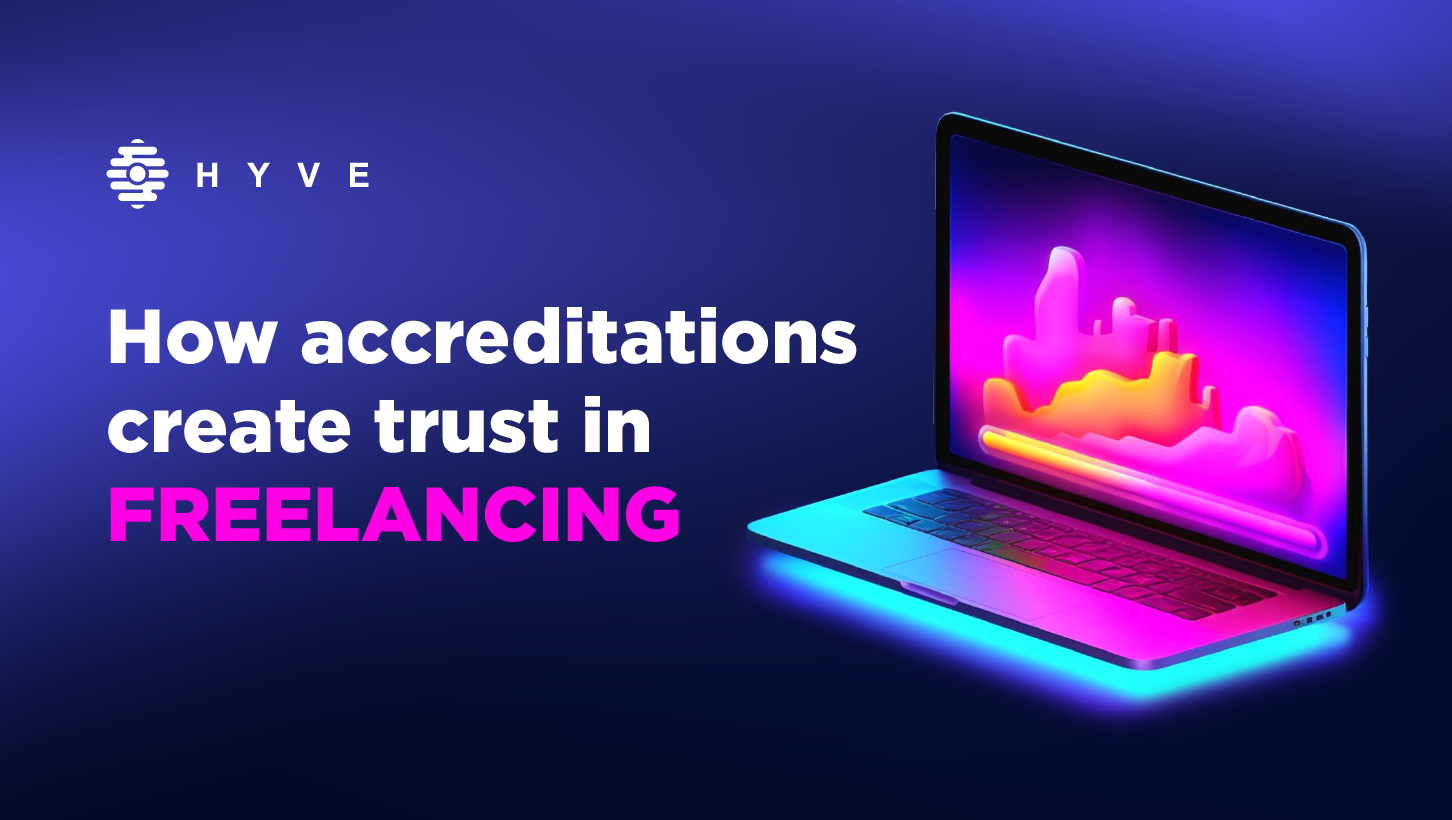How accreditations create trust in Freelancing

In the dynamic world of freelancing, building trust with potential clients is crucial. Accreditations are a powerful tool to establish credibility and reassure clients of a freelancer’s professionalism and expertise. Moreover, freelancers who have acquired certain accreditations and certifications can charge higher rates, as they have further professional experience.
Today we'll explore how accreditations play a vital role in freelancing, creating a professional and verifiable seal of approval so that clients know they are paying for quality work.
Trust in one's skills and expertise
Accreditations, whether from educational institutions, industry associations, or specialized training programs, act as a seal of approval. They validate that a freelancer has met specific standards of competence and proficiency in their field. For clients, this reduces the uncertainty associated with hiring a new freelancer by providing tangible proof of skills, which is particularly important in fields that require technical expertise or specialized knowledge.
Trust is the foundation of any freelancing engagement. Accreditations contribute to building this trust by assuring clients of the freelancer’s dedication to ethical standards and quality.
Enhancing Profile Visibility & Differentiation
Freelancers with accreditations often enjoy enhanced visibility on freelancing platforms. Many platforms feature filters that allow clients to search for freelancers based on their qualifications, and having formal accreditations can significantly increase a freelancer’s chances of being noticed. Additionally, profiles that display accreditations are generally perceived as more attractive, as they convey a commitment to professional development and excellence.
Commitment to continuous learning
The process of earning and maintaining accreditations encourages freelancers to continually update their skills and knowledge. This commitment to ongoing education can lead to better service delivery and innovation, further enhancing a freelancer's reputation and client satisfaction.
The freelancing market is crowded, and standing out is essential for success. Accreditations provide a clear differentiation factor, distinguishing a freelancer from competitors who may not have similar qualifications. This differentiation is not just about having advanced skills but also about showing dedication to one’s craft, which can be a decisive factor for clients when choosing between similar service providers.
Charging higher rates
Freelancers with accreditations can often command higher rates due to their verified skills and qualifications. Clients are usually willing to pay a premium for services that are backed by credible accreditations because they anticipate higher quality and reliability. This enables freelancers to not only attract more clients but also to enhance their earnings potential.
TL;DR?
Accreditations are more than just certificates - they are a testament to a freelancer's commitment to professionalism, quality, and continuous improvement. For clients, these credentials build confidence in a freelancer’s abilities, fostering trust and paving the way for successful collaboration.
As the freelancing landscape grows, the value of accreditations cannot be overstated, serving as a crucial element in establishing trust and credibility in the digital marketplace.
Accreditation recognition @HYVE
We've released three parts of our updated roadmap for 2024/2025, with the Fourth Era currently under work. If you read the previous articles, you'd know we're working on including accreditations and a new formal way to recognize skills. Within the Second Era we talked about a new reputational system, defined by user roles and building connections, akin to LinkedIn.

In the third era, we aim to further diversify user roles, with accreditations and reviewers. This means some users can increase in skills and be rated by other users, aka reviewers. Reviewers are professionals who already possess certain accreditations and can rate others, increasing trust in the platform and its freelancers.

Join our Telegram Channel for the latest updates and discussions with the team!

